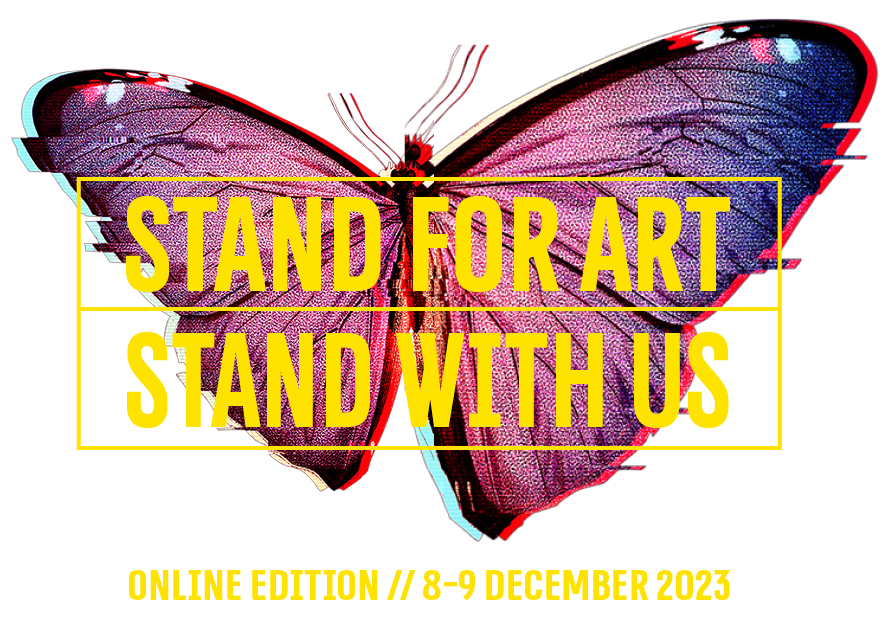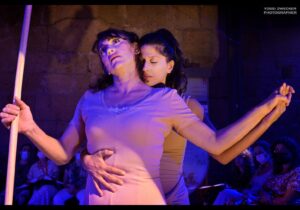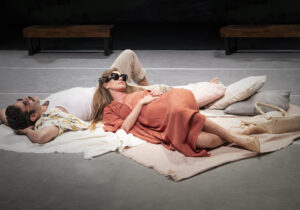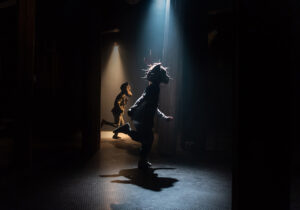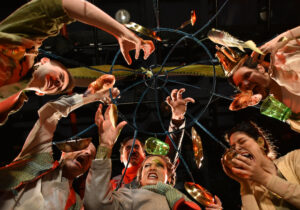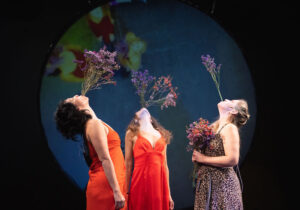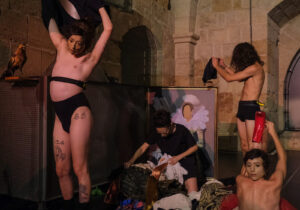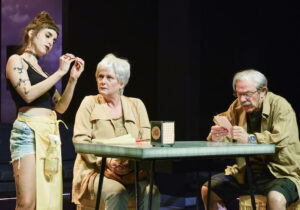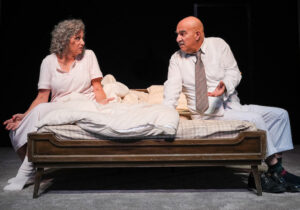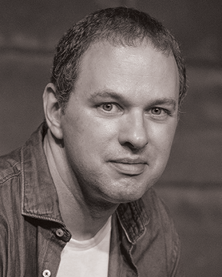
statement FROM THE CHAIR
OF ARTISTIC COMMITTEE
Dr. Roy Horovitz
Dear Guests,
Thank you all for standing for art, standing with Israel, during this horrific time.
In September 1939, on the eve of WWII, the great Hebrew poet Leah Goldberg wrote the following manifesto:
The poet is the person who, in days of war, is not allowed and must not forget the real values of life. The poet is not only permitted to write love poems in days of war, but he must do so, because even in days of war, the value of love is greater than the value of murder. Not only it is the poet's right to read his poem to Nature, to the blooming trees, to the children who know how to laugh, but it is his duty, the duty to remind a human being that he still is a human being (…) and that at any time and at any hour, the moment to become a human being again is not missed yet.
In adapting our original program for Isra-Drama: International Exposure of Israeli Theatre to the current on-line version, we are fulfilling Goldberg’s vision in full. We have gathered a range of performances from established and emerging Israeli theatre artists, which reflect the richness and diversity of the local scene: from “well-made” plays through visual theatre and performance art, to puppet theatre and dance theatre; from one-person shows to big cast shows; from works by veteran and well-known artists to some fresh, new talents. All of them are available for you to watch on our website. I truly believe that in this bonanza of performances, each of you will find something right and “tasty”.
Our goal has always been, and still is, to set in motion a fresh, direct dialogue between you and Israeli artistic creators; to provide you the opportunity to obtain a broad view of Israeli theatre, its unique nature and aesthetic, and find partners for future collaborations.
Therefore, in addition to the full productions, we will meet for three discussion panels concerning new aspects in Israeli theatre: the role of theatre (and art in general) in times of war and crisis, the works of young and revolutionary artists, and what challenges humanity and the arts are about to face in the near future.
Through tears, Israel is celebrating its 75th anniversary this year. We are very proud of the international recognition and reputation of our culture thanks to distinguished artists such as David Grossman, Hanoch Levin, Ohad Naharin, Joshua Sobol, Gal Gadot (Wonder Woman herself!), Assaf Avidan, Dana International, Amos Gitai, and many other household names. I am thrilled and honored to continue our international exposure and our legacy.
Thank you all (those of you who have been here before and keep coming back, and our first timers!), and please feel free to contact me and the rest of our team, any time with any question, feedback, wish, note, complaint or compliment…
Once again, thank you for standing with us. Together we will prevail!
Yours,
Dr. Roy Horovitz
Chairman of the Artistic Committee

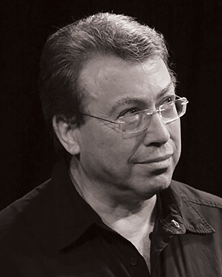
statement FROM THE HANOCH
LEVIN INSTITUTE OF ISRAELI DRAMA
Noam Semel, Chairman Shimrit Ron, Director
Dear participants,
On the morning of October 7, we woke up to the sound of warning sirens. We were sure it must be a malfunction, and it took us time to realize that it was something completely different.
The current war is the hardest Israelis have experienced since the War of Independence in 1948. Armed terrorists went into homes, murdered entire families, kidnapped children, burned down entire kibbutzim – the constantly accumulating discoveries are turning our lives into a trauma in the making. Every person in the small State of Israel knows someone who was killed, kidnapped, or wounded, we all run to the bomb shelters in the evenings, scared by rockets; Hamas has murdered sleep.
The festive theatre exposure event, during which the best of Israeli theatre is presented to you, was supposed to begin on 22 November. Since Tel Aviv is still at war, and the city’s hotels have been transformed into a place of refuge for evacuees who have lost their homes, we have decided to hold the event online:
We are inviting you to an online event that will include live encounters and panel discussions. The excellent productions selected for the program will be available for you to watch on our website. It is important for us to stay in touch with you even now, to maintain a dialogue with you, and to help promote the artists and creators chosen for the program. For us, this is an opportunity to choose art, to choose life!
Wisława Szymborska wrote: “After every war someone has to clean up. Things won’t straighten themselves up, after all”. But we are still in the midst of war, and from this position, everything is read somewhat differently.
How do we go on after October 7? What role does art play when the cannons roar? Can theatre be a space for healing?
We haven’t found any answers; we’ll engage with these questions in the new version of the International Exposure event.
We hope you’ll join us for a week of watching shows and participating in panel discussions, and appreciate our efforts to bring Israeli theatre all the way to your doorstep. We’ve put together a fascinating, thought provoking, and heartwarming program for you.
In hopes for peaceful days, an end to the violence and suffering on both sides, and the safe return of all the hostages being held in Gaza,
Shimrit Ron, Director
Noam Semel, Chairman
The Hanoch Levin Institute of Israeli Drama
